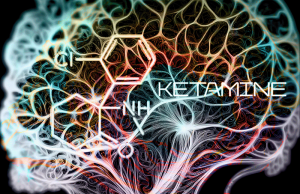Introduction
In the realm of healthcare, few areas are as critical, yet as overlooked, as mental health. Despite the fact that mental health disorders are among the leading causes of disability worldwide, our current mental health system often falls short in providing adequate, accessible, and effective care for those who need it most. This blog post aims to shed light on the current state of our mental health system, the reasons behind its shortcomings, and the urgent need for disruption and innovation.
The current state of the mental health system is, in many ways, a reflection of historical neglect and misunderstanding. Despite significant advancements in our understanding of mental health disorders and their treatment, many individuals continue to face barriers to accessing care, including stigma, lack of resources, and inadequate treatment options. Furthermore, the treatments that are available often fail to adequately address the complex and multifaceted nature of mental health disorders, leading to suboptimal outcomes and a cycle of chronic illness.
In the face of these challenges, it’s clear that our mental health system is in need of a major overhaul. The question is, how can we disrupt the status quo and create a system that truly meets the needs of those struggling with mental health disorders? In the following sections, we’ll explore this question in depth, examining the potential of innovative approaches such as ketamine and psychedelic therapies to transform the landscape of mental health care.
The Current Mental Health System: A Critical Review
To understand the need for disruption, we must first critically examine the current state of our mental health system. While it has its strengths, there are also significant weaknesses that prevent it from effectively serving the needs of many individuals.
One of the strengths of the current system is the increased recognition and understanding of mental health disorders. Over the past few decades, there has been a significant shift in the way we perceive mental health, with a growing recognition of its importance to overall well-being and an increased understanding of the biological and environmental factors that contribute to mental health disorders.
Furthermore, there have been significant advancements in treatment options, with a range of medications and psychotherapies available that have been shown to be effective for many individuals. There has also been a growing emphasis on the importance of early intervention and prevention, with an increasing number of programs aimed at identifying and treating mental health disorders in their early stages.
However, despite these strengths, the current mental health system has significant weaknesses. One of the main issues is accessibility. Many individuals struggle to access mental health services due to factors such as cost, lack of available services, and stigma. This is particularly true for marginalized and underserved populations, who often face additional barriers to accessing care.
Another major issue is the focus on a ‘one-size-fits-all’ approach to treatment. While the available treatments can be effective for many individuals, they don’t work for everyone. Many people with mental health disorders fail to respond to first-line treatments and are left with few other options. This is particularly true for conditions like depression and PTSD, which often require a personalized and multifaceted treatment approach.
Finally, there is a lack of integration between mental health services and other areas of healthcare. Mental health is often treated in isolation, despite the fact that it is closely linked with physical health. This lack of integration can lead to fragmented care and suboptimal outcomes.
In summary, while the current mental health system has made significant strides, it is failing many individuals. The system’s weaknesses, including issues with accessibility, a ‘one-size-fits-all’ approach to treatment, and a lack of integration, are preventing it from effectively serving the needs of those with mental health disorders. In the next section, we’ll explore the consequences of these failures and the urgent need for disruption.
The Consequences of an Imploding System
The consequences of a failing mental health system are far-reaching, impacting not only individuals but also society as a whole.
On an individual level, the impacts are profound. When people can’t access the care they need, or when the treatments they receive are ineffective, their mental health disorders can become chronic and debilitating. This can lead to a range of negative outcomes, including poor physical health, decreased quality of life, and increased risk of suicide. Furthermore, untreated mental health disorders can impact all areas of a person’s life, including their relationships, education, and employment.
On a societal level, the impacts are equally significant. Mental health disorders are a major cause of disability and lost productivity, resulting in significant economic costs. Furthermore, they can contribute to a range of social issues, including homelessness, substance abuse, and criminal behavior.
To illustrate these impacts, consider the case of a young woman with severe depression who is unable to access the care she needs due to cost and stigma. Despite her best efforts, her depression becomes chronic, impacting her ability to work, maintain relationships, and lead a fulfilling life. This not only causes significant suffering for her, but also results in lost productivity and increased healthcare costs.
Or consider the case of a veteran with PTSD who fails to respond to first-line treatments. Despite seeking help, his symptoms persist, leading to chronic disability, substance abuse, and eventually homelessness. This not only devastates his life, but also places a burden on social services and the healthcare system.
These cases are not isolated incidents, but rather examples of the widespread impacts of a failing mental health system. They highlight the urgent need for disruption and innovation, and the potential of approaches like ketamine and psychedelic therapies to transform the landscape of mental health care. In the next section, we’ll explore this potential in more detail.
The Need for Disruption
The current state of our mental health system, with its significant shortcomings and far-reaching consequences, makes it clear that disruption is not just desirable, but necessary. We need innovative solutions that can address the system’s weaknesses, meet the diverse needs of individuals with mental health disorders, and ultimately transform the landscape of mental health care.
Disruption is necessary for several reasons. Firstly, the current system is failing to meet the needs of many individuals. As we’ve seen, many people struggle to access care, and even when they do, the treatments they receive are often ineffective. We need innovative solutions that can improve accessibility, personalize treatment, and improve outcomes.
Secondly, the current system is unsustainable. The economic and social costs of untreated mental health disorders are significant and growing. Without disruption, these costs will continue to rise, placing an increasing burden on individuals, families, and society.
Finally, disruption is necessary because it’s possible. Advances in neuroscience, technology, and our understanding of mental health disorders have opened up new possibilities for treatment and care. We now have the tools and knowledge to create a better, more effective mental health system.
One of the most promising areas of innovation is the use of ketamine and psychedelic therapies. As we’ve seen in the previous blog post, these therapies have the potential to enhance empathy, foster self-discovery and personal growth, and improve mental health. They represent a radical departure from traditional approaches to treatment, offering a new paradigm for mental health care.
In the next section, we’ll delve deeper into the potential of ketamine and psychedelic therapies, exploring how they could revolutionize the mental health system and pave the way for a more effective, compassionate, and holistic approach to care.
Ketamine and Psychedelics: A New Hope
Ketamine and psychedelic therapies represent a beacon of hope in the landscape of mental health care. These innovative treatments have the potential to revolutionize the system, offering new ways to address mental health disorders that go beyond the limitations of traditional approaches.
One of the ways these therapies could revolutionize the mental health system is by offering more effective treatments for conditions that are often resistant to traditional therapies. For example, ketamine has been shown to have rapid-acting antidepressant effects, even in individuals with treatment-resistant depression. Similarly, psychedelics like psilocybin and MDMA have shown promise in the treatment of conditions like PTSD and addiction, offering hope to individuals who have not responded to other treatments.
These therapies also offer a more holistic approach to mental health care. Rather than simply targeting symptoms, they aim to facilitate profound psychological change, fostering self-discovery, personal growth, and improved mental health. This represents a shift away from the ‘one-size-fits-all’ approach of traditional treatments, towards a more personalized and comprehensive approach to care.
The potential of ketamine and psychedelic therapies is supported by a growing body of scientific evidence. Numerous studies have shown that these treatments can be safe and effective when administered in a controlled setting, under the supervision of trained professionals. For example, a study published in the “American Journal of Psychiatry” found that ketamine significantly reduced depressive symptoms in individuals with treatment-resistant depression. Similarly, a study published in the “Journal of Psychopharmacology” found that psilocybin-assisted therapy significantly improved symptoms in individuals with treatment-resistant depression.
However, while the potential benefits of these therapies are significant, they also come with potential risks and considerations. These substances can induce intense and sometimes distressing experiences, and their use should be carefully monitored by trained professionals. Furthermore, they are not suitable for everyone, and their use should be considered in the context of an individual’s overall mental health and medical history.
In conclusion, ketamine and psychedelic therapies offer a new hope for the mental health system, with the potential to revolutionize care and improve outcomes for many individuals. However, further research is needed to fully understand their potential benefits and risks, and to determine how best to integrate these therapies into the mental health system.
Conclusion
In this exploration of the need for disruption in our mental health system, we’ve delved into the current state of mental health care, the consequences of its shortcomings, and the potential for innovative solutions like ketamine and psychedelic therapies to revolutionize the landscape of care.
We’ve seen how the current system, despite its strengths, is failing many individuals, leading to significant personal and societal impacts. We’ve also discussed the urgent need for disruption, and the potential of ketamine and psychedelic therapies to provide more effective, personalized, and holistic treatments.
Looking to the future, it’s clear that disruptive therapies like ketamine and psychedelics have a crucial role to play in mental health care. As our understanding of these therapies continues to evolve, they have the potential to transform the way we understand and treat mental health disorders, offering hope to individuals who have not found relief through traditional treatments.
However, realizing this potential will require systemic change. We need to challenge the status quo, to break down the barriers to care, and to embrace innovative solutions. We also need further research to fully understand the potential benefits and risks of these therapies, and to determine how best to integrate them into the mental health system.
The need for disruption in our mental health system is clear. By embracing innovative solutions like ketamine and psychedelic therapies, we have the opportunity to create a better, more effective system that truly meets the needs of those struggling with mental health disorders. Let’s seize this opportunity, and work together to create a future where everyone has access to the care they need.



